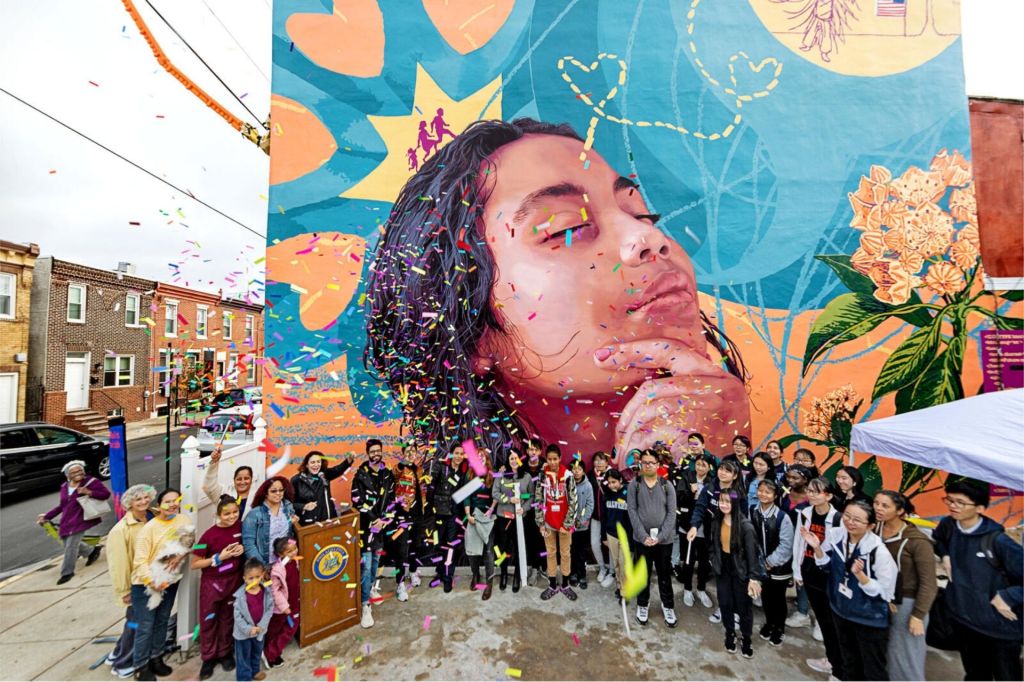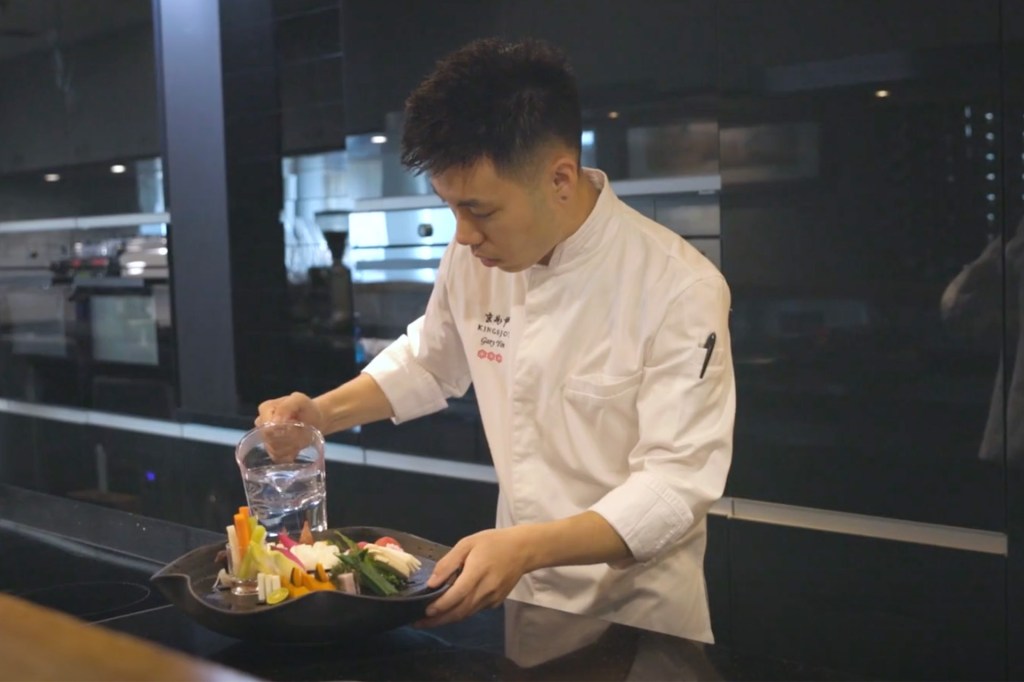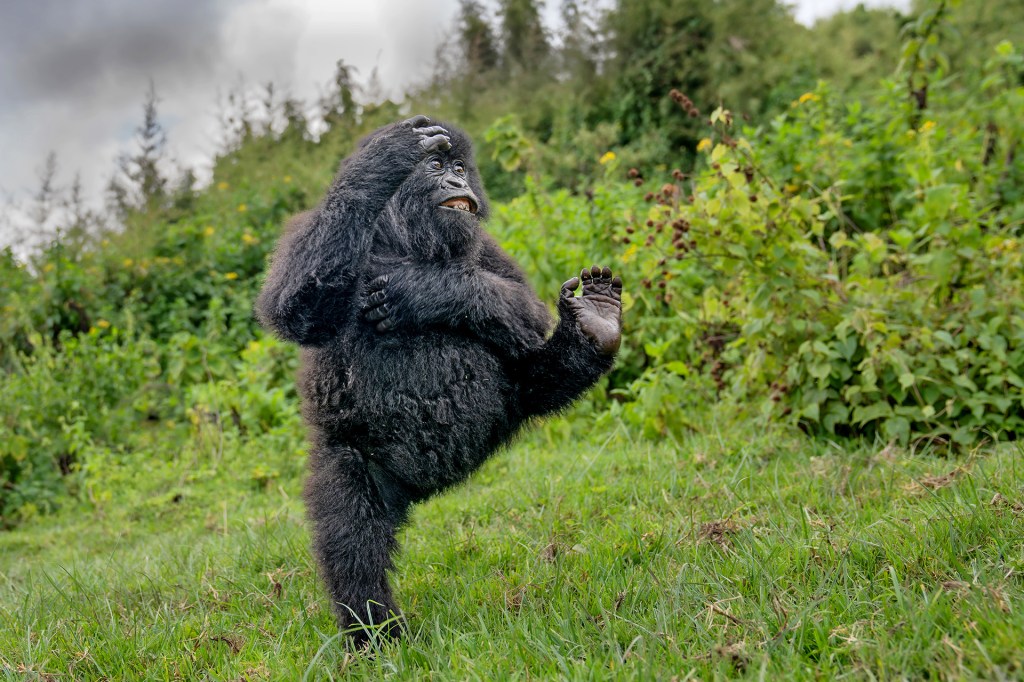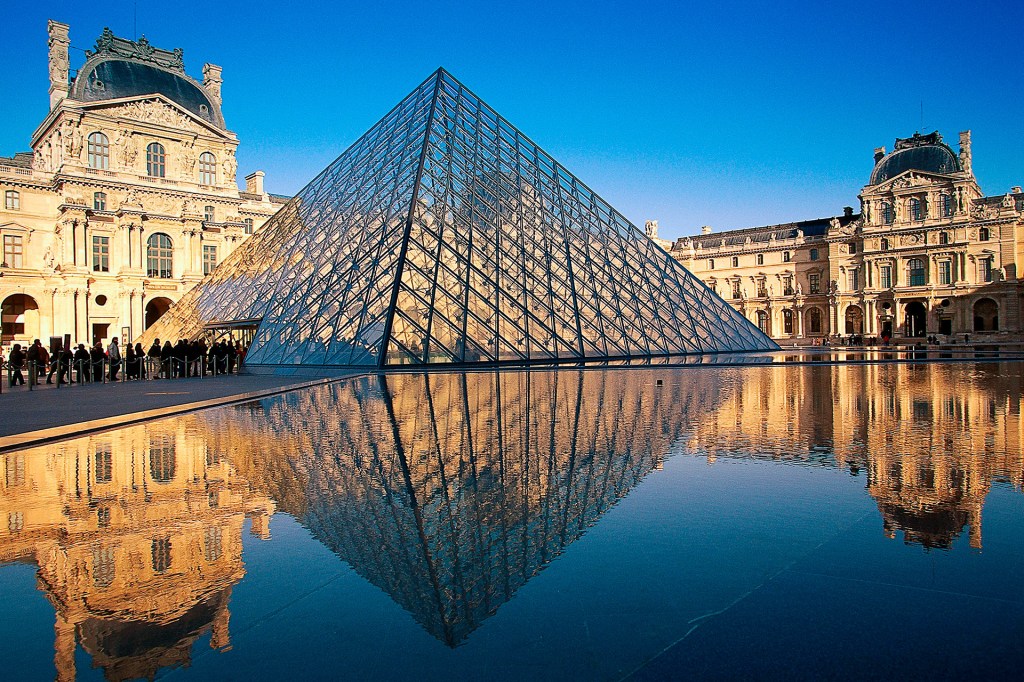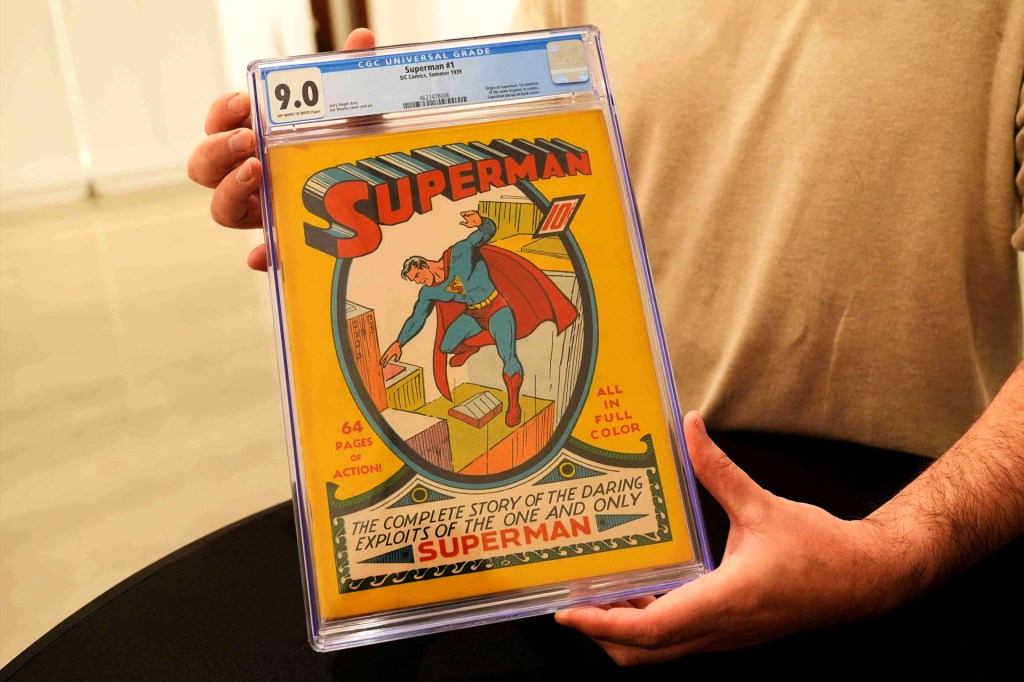
There’s a mural in Winsted, Connecticut, that’s five stories tall and 120 feet long. Artist Ellen Griesedieck came up with the idea in 1999. She created the mural with help from thousands of students all over the country. More than 20 years in the making, the massive artwork is now on display for the public.
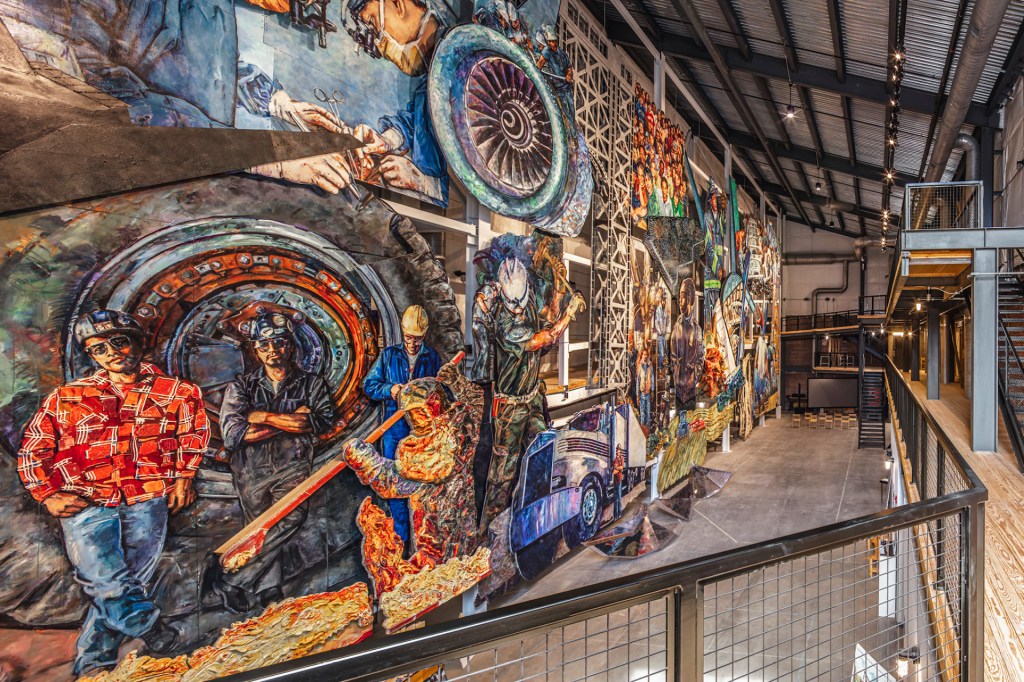
ON DISPLAY Griesedieck’s mural was unveiled in June 2022, in a former mill in Winsted, Connecticut.
PETER BROWNGriesedieck calls the work the American Mural Project (AMP). That’s also the name of the arts center where it’s displayed. The mural celebrates American workers. Steelworkers, heart surgeons, athletes, and a teacher are among those pictured. “There’s somebody real behind every piece of this,” Griesedieck told TIME for Kids.
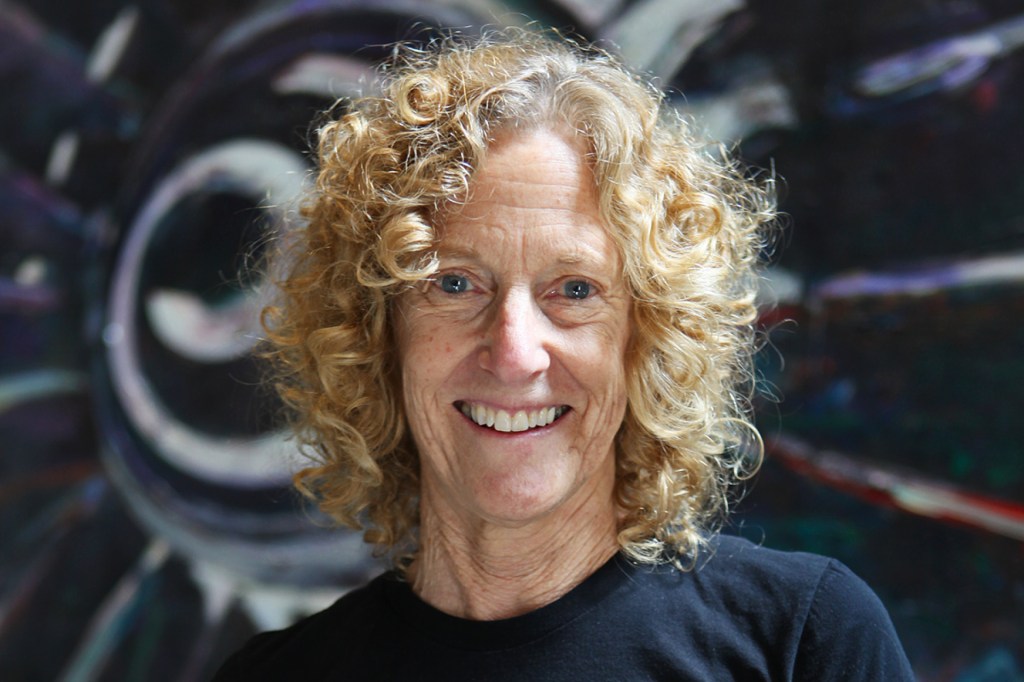
PERSISTENCE COUNTS Griesedieck has been working on the American Mural Project for more than 20 years.
MARIE STALLINGTo create the mural, Griesedieck met workers in small towns and cities all over the United States. She took photos of them on the job. Then she painted them. There’s Pamela. She’s shown working at a Boeing aircraft factory in Everett, Washington, wiring a plane. There’s Nina, a farmer. And Edwin, a New York City police officer. “The portrait
portrait
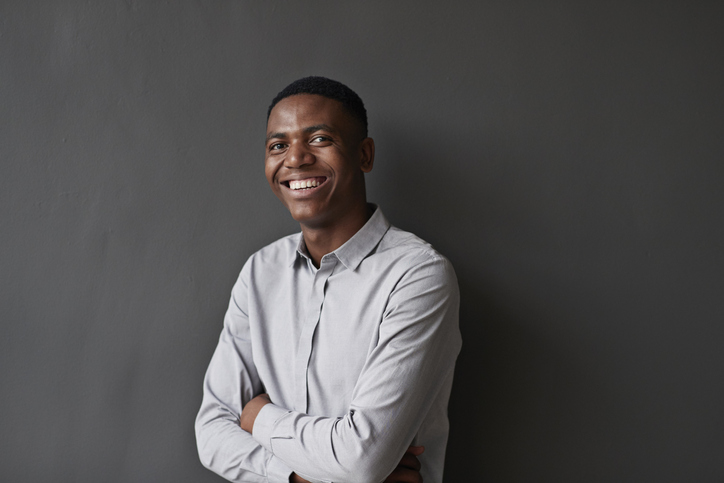 KLAUS VEDFELT—GETTY IMAGES
a picture that focuses on someone’s face
(noun)
The teacher posed for a school portrait.
of him is 18 feet high,” Griesedieck says. “But his story is way bigger than that.” Griesedieck likes to get to know the people she paints. This makes her portraits feel personal.
KLAUS VEDFELT—GETTY IMAGES
a picture that focuses on someone’s face
(noun)
The teacher posed for a school portrait.
of him is 18 feet high,” Griesedieck says. “But his story is way bigger than that.” Griesedieck likes to get to know the people she paints. This makes her portraits feel personal.
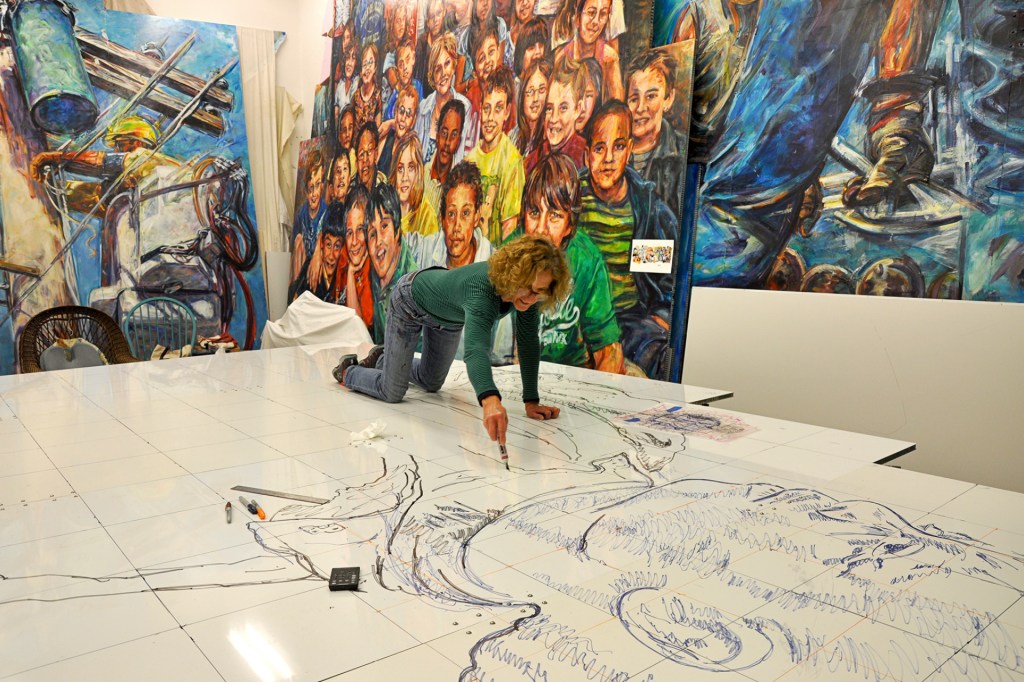
ARTIST AT WORK Ellen Griesedieck sketches an image of Edwin Raymond, a police officer.
SHARI MARKS
ON THE JOB Firefighter Melissa Bennett, of New York City, is featured in the mural.
ELLEN GRIESEDIECKA Team Effort
Student participation is a huge part of Griesedieck’s art project. From the beginning, it was important to her that kids be included. So far, AMP has worked with 15,000 students, from preschool to high school, in 17 states. In West Virginia, fifth graders from Ceredo Elementary School worked with a glassblower to make a 42-foot image of water on which a fishing boat is floating. In New Mexico, kids made ceramic tiles. They’re pieced together to form the red-and-white plaid shirt of a mechanic named Stitch.
Kathy Reddy teaches art in Fairfield, Connecticut. She and her students have been involved with AMP for more than a decade. Reddy’s first and second graders made life-size self-portraits showing what they want to be when they grow up. These were displayed at the school. Older kids made a quilt. It depicts work done by their grandparents, and will one day be displayed at the AMP building.
“Every one of the projects we did was a lesson that kids have a voice,” Reddy says, “and that they can express themselves in an artistic way.”
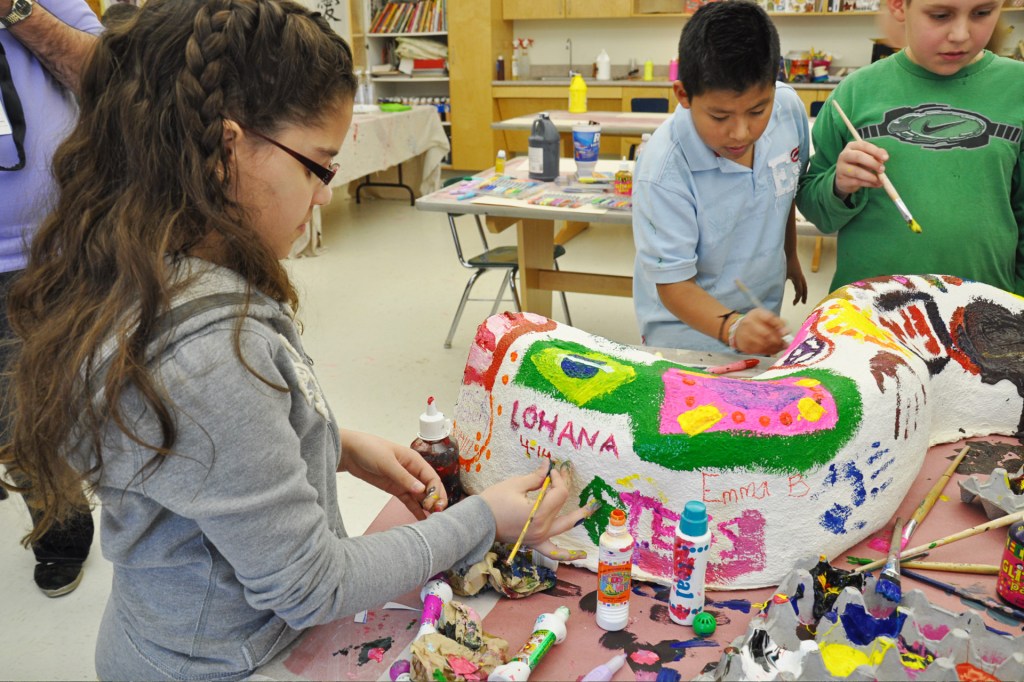
HANDS-ON Over the years, AMP has worked with thousands of students, including these in 2009.
MARIE STALLINGGetting Creative
The AMP building is a former mill. Inside, parts are still being added to the mural. “We’re a work in progress,” says Michelle Begley, the education programs director. “We anticipate that we’ll never really be done.”
Students who go to see the mural can take art classes at AMP, which also leads programs in schools. “We’re really focusing on hands-on, open-ended creativity,” Begley says. “Our school visits immerse students in the thrill of large-scale artmaking.”
For Griesedieck, AMP is all about collaboration
collaboration
 JAIME GRILL—JGI/GETTY IMAGES
working together
(noun)
Lucy performed in collaboration with other musicians.
. “I tell kids, ‘When you come here, we’re working together on something bigger than we are,’” she says. “The only way you can do something like this is if you work with other people.”
JAIME GRILL—JGI/GETTY IMAGES
working together
(noun)
Lucy performed in collaboration with other musicians.
. “I tell kids, ‘When you come here, we’re working together on something bigger than we are,’” she says. “The only way you can do something like this is if you work with other people.”
Piecing it Together

It takes teamwork to install a giant piece of art. These workers are using a mechanical lift to add a large-scale portrait of New York City firefighter Melissa Bennett to Griesedieck’s mural.
Bennett’s portrait is just one part of many. For example: “We’ve got 116 pieces of marble that look like a jigsaw puzzle of the Statue of Liberty,” Griesedieck says. Adding those heavy pieces to the mural took more than a month.





